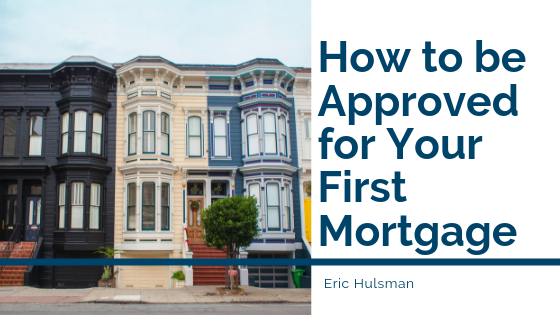Mortgage lenders have tightened the purse strings when it comes to applying for your first mortgage. Even though the U.S. economy was still rebuilding after the recession ten years ago, the housing market has stayed competitive in many parts of the country. This has made homebuyers more competitive. But before you can even become a competitive part of the market, you have to be qualified for a mortgage.
In 2008-2009, anyone who wanted to purchase a home was qualified to apply for a mortgage. Lenders pushed bad loans on individuals with poor credit knowing that they wouldn’t be able to afford the payments eventually defaulting on their mortgages. This practice was unsustainable for the market, and ultimately, the market crashed. Banks and credit companies were bailed out while millions of homeowners lost their homes or got stuck with a mortgage that was worth more than their house.
Since the recession, banks have upped the criteria to determine whether they are going to make a loan. That doesn’t mean you won’t be able to apply for a mortgage for your first house, but first-time home buyers will have to prove to their bank or a mortgage lender that they are financially prepared and responsible enough to take on a mortgage.
Before even considering a mortgage application, you’ll need to know the following things about your finances:
- Monthly income
- Sum of the total monthly debt payments you make (auto loans, student loans, credit card minimum payments, etc.)
- Credit score and any past credit issues
- How much cash you will be putting down
- Cost of the house you can afford
Once you have your finances and expenses in order, you can schedule an appointment to meet with a mortgage lender and get pre-qualified for a mortgage. To be pre-qualified, a lender thinks that based on your credit score, income, and other financial factors, that you can be approved for a mortgage. Becoming pre-qualified is an informal and non-binding process. It just gives the individual an idea of what their potential mortgage could look like.
Once you are ready to purchase a house, you will want to become pre-approved and can do this through a local bank, credit union or mortgage broker. Some individuals choose to be pre-approved online through any online mortgage lender. It’s important to remember that the pre-approval process also isn’t binding but is a more formal step and indicator that you can be approved for a mortgage. Sellers often want to see pre-approval once you submit an offer on a property.
If you have good credit and a good, steady income, it will be relatively easy for you to be approved for a mortgage. When you are ready to purchase a house, shop around and look at different mortgage companies and the financing options they offer. Any difference in your mortgage rate can add up over time and potentially save you money.

